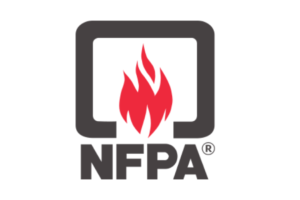What is the NFPA standard?
The National Fire Protection Association (NFPA) is a U.S.-based organization that plays a significant role worldwide in fire safety and protection. Founded in 1896, NFPA conducts research, establishes standards, and provides education programs on fire safety and protection. NFPA is an organization with approximately 50,000 members worldwide and has an impact in many areas related to fire safety.
NFPA establishes standards on fire safety and protection and publishes standards that are widely used in many fields in this area. NFPA standards cover firefighting equipment, structural design, fire protection systems, electrical systems, and other related areas.
The standards provide guidelines on fire safety equipment and human behavior related to fire safety. The NFPA standards are a series of standards that are widely accepted by many countries worldwide. NFPA also offers education and training programs on fire safety and protection. These programs provide information on the latest developments in the industry and equip those who want to gain expertise in fire safety and protection with the necessary knowledge and skills. NFPA’s education programs include certification programs, professional development programs and online courses.
NFPA also hosts fire safety and protection conferences worldwide and encourages participation in these conferences. These conferences provide information about industry developments and present best practices and methods in fire safety and protection. NFPA plays an important role worldwide in fire safety and protection. The standards developed in this field are widely accepted in many countries and play a crucial role in protecting people’s lives in terms of fire safety and protection. NFPA also contributes to the development of the industry by providing education and training programs on fire safety and protection.
The standards published by NFPA are of great importance in terms of fire safety and protection. These standards include many developed by NFPA on important topics such as protecting buildings against fires, using fire-fighting equipment, safely evacuating people during fires, and other crucial matters related to fire safety and protection. NFPA standards cover the fire resistance of structures, fire suppression systems, fire alarm systems, protecting electrical equipment against fire, storing and using flammable liquids, fire safety education, safely evacuating people during fires, and other important topics related to fire safety and protection. One of NFPA’s most important standards, NFPA 101: Life Safety Code, covers evacuating people safely during fires and other related topics. This standard provides detailed guidelines on the design, construction, maintenance, and use of buildings to ensure the safe evacuation of people in the event of a fire. NFPA 101 also covers preventative and protective measures such as fire alarm systems, fire suppression systems, and emergency exit signs.
NFPA also works to educate the public on preventing and controlling fires and explosions. NFPA promotes awareness and encourages safe behavior related to fires and explosions by offering educational materials, seminars, and certification programs aimed at a wide audience. NFPA provides guidance for industries and public organizations to develop and implement fire and explosion prevention and control programs. NFPA conducts a variety of research and analysis studies to help industries and public institutions understand the challenges and risks they face in preventing and controlling fires and explosions.
In conclusion, NFPA is a globally recognized authority in the prevention and control of fires and explosions. NFPA standards cover the fire resistance of structures, fire suppression systems, fire alarm systems, protecting electrical equipment against fire, storing and using flammable liquids, fire safety education, safely evacuating people during fires, and other important topics related to fire safety and protection. NFPA works to educate the public and conduct studies to help industries and public organizations develop and implement fire and explosion prevention and control programs. In addition, NFPA establishes standards for fire services and conducts work in the area of fire service training. Firefighters are trained according to NFPA standards and learn firefighting techniques.
NFPA also conducts research and development activities and provides innovative solutions for fire and explosion prevention. These efforts help to develop new technologies and methods for industries and buildings at risk of fire and explosion.
